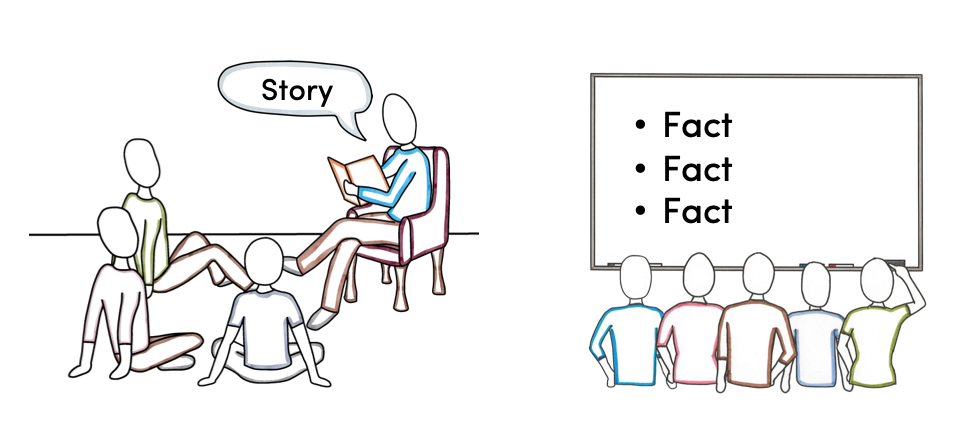
Some of my days at Common Craft are spent writing scripts for our videos. I think it’s the most important part of my job because the script is where the explanation comes to life and I enjoy every minute of it.
I often use stories or narratives to explain the big ideas in a video by following a character as they learn a new subject or concept. While this kind of story isn’t a good fit for every video, I firmly believe in the power of stories to persuade and relate memorable information.
In my book, The Art of Explanation, I described the role of stories in explanations like this:
“Facts give stories substance. Stories give facts meaning.”
Recently, I found research (based on three studies) that sheds light on the role of stories and facts in the context of persuasion. The basic question the researchers, Rebecca J. Krause and Derek D. Rucker, hoped to answer was this: If someone is trying to persuade or influence others, should they use a story or stick to the facts?
The research found that the impact of a story depended on the strength of the facts that were being communicated. You might be wondering: what is a strong fact? From what I can tell, it’s a surprising or meaningful fact. In one study that focused on fictional cell phones, the strong fact was, “The phone can withstand a fall of up to 30 feet.” The weak fact was, “The phone can withstand a fall of up to 3 feet.”
This article summarized the researcher's findings:
Krause and Rucker found that when facts were weak, a story with the facts embedded within it led to greater persuasion than facts alone. But when facts were strong, the opposite effect occurred: facts alone led to more persuasion than a story with the facts embedded within it. This result suggests that stories don’t just direct people away from weak information; they reduce people’s general processing of information. As a consequence, stories help persuasion when facts are weak, but they hurt persuasion when facts are strong.
As an explainer, I find this fascinating and to some degree, validating. In our work, facts don’t usually play the starring role. Instead of blowing your mind with amazing facts, we focus on clarity and the big picture. In this context, facts are more like supporting players who are there to provide substance for the story.